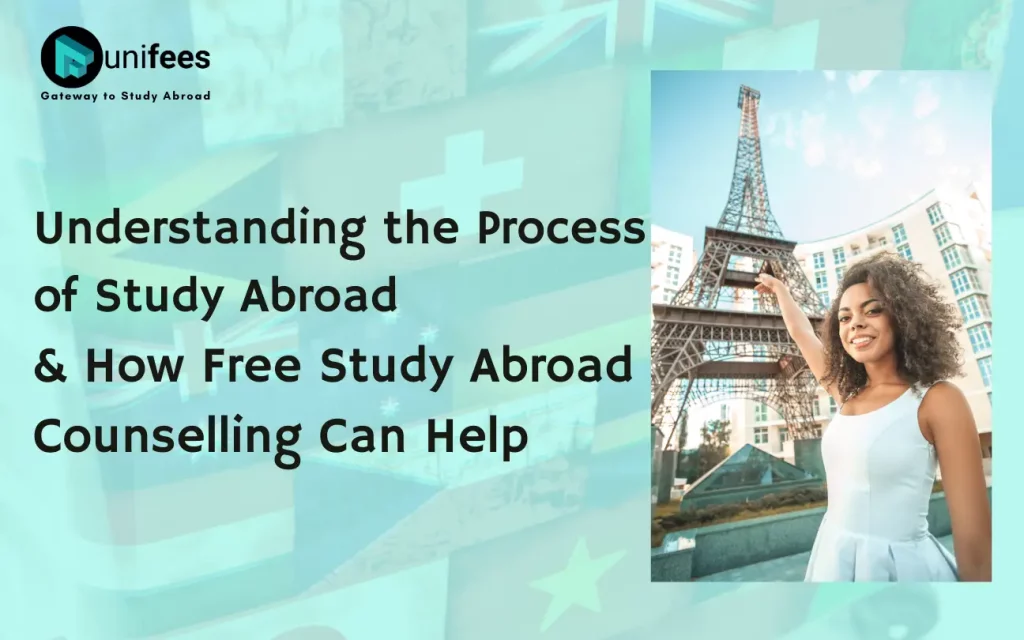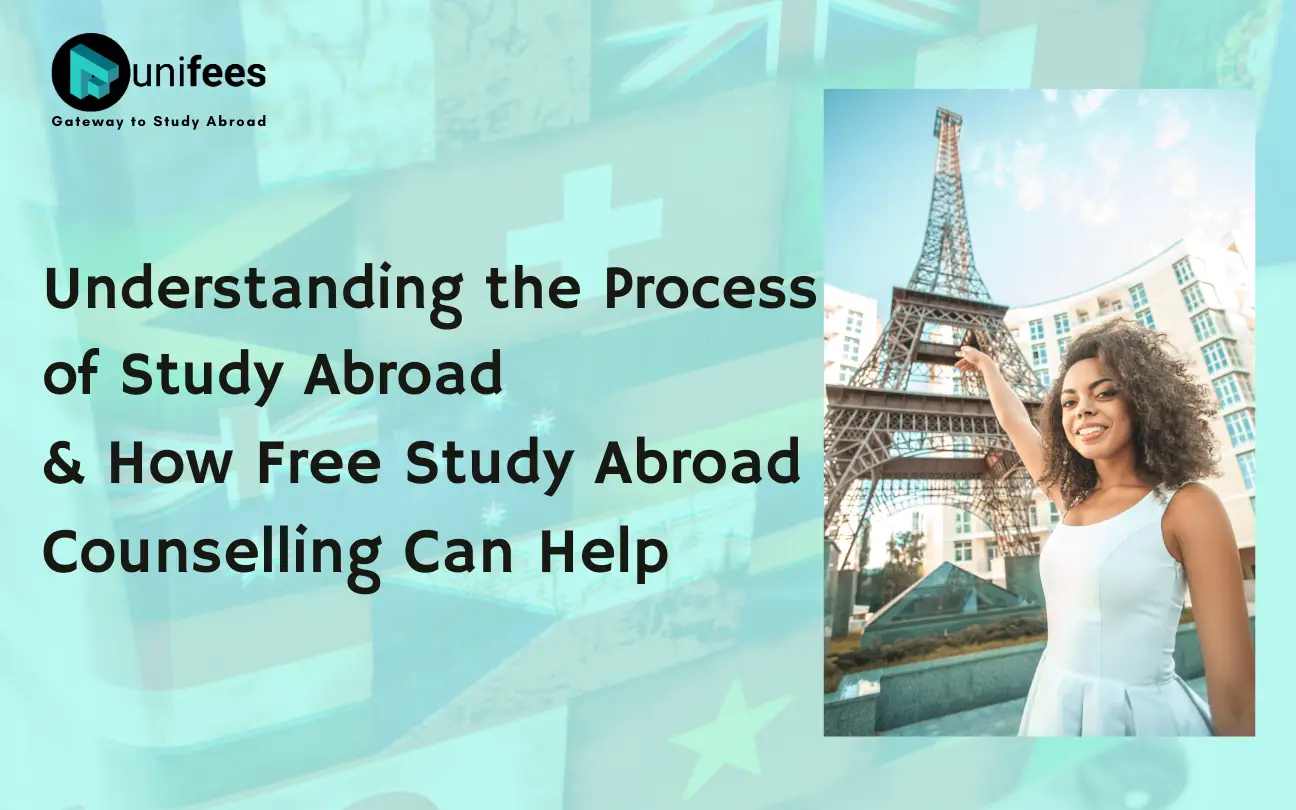Understanding the Process of Study Abroad & How Free Study Abroad Counselling Can Help

Studying abroad can be a life-changing experience that offers a range of personal and academic benefits. From experiencing new cultures and making lifelong connections to gaining a competitive edge in the job market, studying abroad has become an increasingly popular choice for students around the world. However, the process of studying abroad can be overwhelming and confusing, especially for first-time international students. This is where free study abroad counselling can be of great help.
At Study Unifees, we understand the challenges that come with studying abroad, and we are committed to helping students make informed decisions about their academic journey. In this blog, we will take you through the process of studying abroad and explain how free study abroad counselling can help.
Step 1: Researching Study Abroad Options
The first step in studying abroad is to research your options. This involves finding out about different study programs, universities, and countries that suit your academic and personal needs. This can be a daunting task, especially when you consider the vast range of options available. However, with the help of free study abroad counselling, you can receive guidance on finding the right program, university, and country that meets your needs and expectations.
Step 2: Applying to Universities
Once you have identified your preferred universities and study programs, the next step is to apply. This can involve filling out application forms, submitting transcripts, and providing other supporting documents. Again, the process can be overwhelming, especially if you are not familiar with the university’s requirements. Free study abroad counselling can guide you through the application process, provide insights on what the universities are looking for, and help you prepare a strong application.
Step 3: Obtaining a Student Visa
If you are planning to study abroad, you will need to obtain a student visa. This involves submitting a range of documents, including your acceptance letter from the university, financial statements, and proof of medical insurance. Visa requirements can vary depending on the country you are applying to, and the process can be complicated. Free study abroad counselling can help you navigate the visa application process, provide advice on what documents to submit, and help you prepare for the visa interview.
Step 4: Preparing for Your Arrival
Once you have obtained your student visa, the next step is to prepare for your arrival. This can involve finding accommodation, arranging transportation, and obtaining a mobile phone and bank account. This process can be daunting, especially if you are unfamiliar with the country you are moving to. Free study abroad counselling can provide you with valuable information about the local culture, customs, and practicalities, making your arrival less stressful.
In conclusion, studying abroad can be a life-changing experience that offers many personal and academic benefits. However, the process of studying abroad can be overwhelming and confusing, especially for first-time international students. At Study Unifees, we provide free study abroad counselling to help you make informed decisions about your academic journey. Our expert counsellors can guide you through the process, provide insights and advice, and help you prepare for your arrival. Book a free counselling session with us today, and take the first step towards your study abroad journey!


